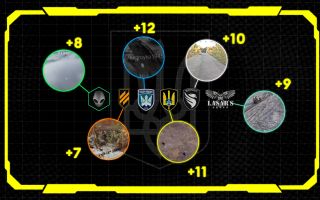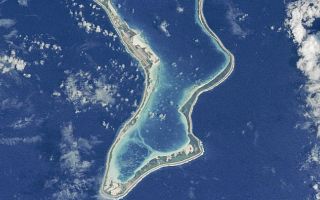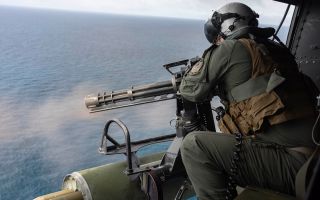UK vessels in Indo-Pacific should be 'concerned' by China boat crash, expert says
The UK should be concerned about the security and trade implications of China's increasingly assertive actions in the South China Sea, a China expert has told BFBS Forces News, following the collision of two Chinese vessels.
Video emerged on August 11th of a People's Liberation Army (PLA) navy destroyer colliding with a Chinese coast guard vessel while the pair were tracking a Philippine patrol boat close to the Scarborough Shoal.
"There have been concerns in the last few years about this activity becoming more assertive in nature," Meia Nouwens, a senior fellow for Chinese security and defence policy at the International Institute for Strategic Studies (IISS), told BFBS Forces News. "Accidents have been avoided. This time, unfortunately, that wasn't the case."
How did the crash occur?
In a video released by the Philippine coast guard, both Chinese vessels can be seen attempting to force a Philippine patrol vessel, which was in the area observing Filipino fishermen, away from the Scarborough Shoal, which China claims as its own. The Chinese coast guard vessel can be seen deploying its water cannon.
The PLA navy destroyer subsequently collides with the bow of the Chinese coast guard vessel, causing significant damage to the hull. At least two Chinese personnel were visible on the coast guard vessel; their whereabouts and condition is unknown.
Ms Nouwens said that the incident overall would be seen by officials in Beijing as "somewhat embarrassing" for both the PLA navy and the Chinese coast guard.
"Clearly, the Chinese want to show that they are in control of what they consider their territory," Nouwens said.
"Most analysts that have looked at the situation have wondered at what point this will lead potentially to a miscalculation or a misunderstanding."
Clashes expand in scale and scope
China has intensified its tracking and engagement activities around the Scarborough Shoal, although this crash is believed to be the first of its kind in the area.
"Over the last few years, we have seen the PLA and the Chinese coast guard be increasingly active," Ms Nouwens said.
Skirmishes have also become increasingly aggressive on China's part; Beijing have used water cannons on vessels and hit other ships to protect their claimed territory.
In one instance, Chinese coast guard personnel came with swords, spears and knives to a confrontation with Filipino soldiers, and a Filipino soldier lost a thumb after his boat was struck in 2024.
"We saw this last year as well, against the Philippines in particular, some quite assertive [and] aggressive behaviour in the form of using, for example, water cannons or ramming other vessels or some near collisions," Ms Nouwens said.
What does it mean for UK forces in the Indo-Pacific?
It is not only the Philippines that has attracted the ire of Beijing when it comes to sailing through their claimed waters. When an offshore patrol vessel, HMS Spey, transited the Taiwan Strait earlier this year, the Chinese condemned the move.
"The British side's remarks distort legal principles and mislead the public; its actions deliberately cause trouble and disrupt things, undermining peace and stability in the Taiwan Strait," the Eastern Theatre Command of China's People's Liberation Army said.
Britain currently has a heightened naval presence in the region. Carrier Strike Group 25, led by the HMS Prince of Wales, is in Japan amid an eight-month deployment, while HMS Tamar is also deployed in the Indo-Pacific.
Ms Nouwens warned that the UK should be "concerned" about whether vessels in the region would ever need to respond to any threat like this.
"There is an interest in making regular, if not very frequent, deployments from UK vessels to the Indo-Pacific," she said.
"There's then the question of whether or not this type of response is something that the UK's forces in the Indo-Pacific would ever face in an assertive manner.
"I think in that sense we do need to be concerned."









